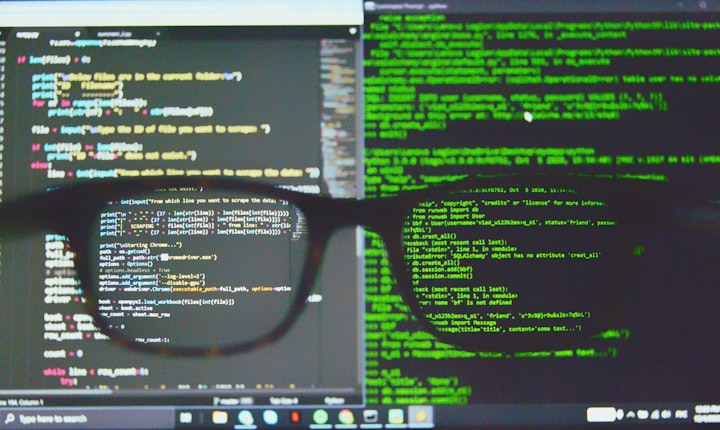
On the basis of “necessities allow prohibitions”, the Russian authorities are looking into the possibility of eliminating criminal and administrative liability for the use of pirated software from companies that complied with the authorities of their country and withdrew from the Russian market, such as Microsoft, IBM, Oracle and others.
According to the Russian newspaper, "Kommersant", this step came within the framework of the Russian authorities' attempts to mitigate the impact of the withdrawal of leading IT companies from Russia and their cessation of selling software and their products to Russian customers, a measure that is expected to cause great damage to the technology and information sector and the work of Russian institutions. that depend on this software. The newspaper revealed the preparation of a program entitled "Plan of priority measures to ensure the development of the Russian economy in the face of pressures from external sanctions", which includes a set of measures to support various sectors of the Russian economy, with the participation of several bodies.
A source familiar with the plan confirmed that some measures have already begun to be implemented. According to the plan, in order to support Russian information technologies, a mechanism for mandatory licensing of software and databases was introduced based on Article 1360 of Russian Law, which allows the government “in absolute necessity” to adopt a decision on the use of an innovation, utility model or industrial model without the consent of the patent owner. The authorities also propose to abolish criminal and administrative liability for the use of unlicensed software in the Russian Federation, "which belongs to the copyright holder of the countries that have supported the sanctions".
In addition to the "foreign software piracy" proposal, the authorities are urgently developing measures to support Russian IT companies. Sources told the newspaper "Kommersant" that among the measures is the postponement of military service for specialists and students in the information technology sector, in addition to granting preferential real estate loans to employees of information technology companies, and exempting companies in this sector from income tax for a period of three years.
In its initial reaction to the proposal, Russia's Ministry of Digital Development said it had neither made nor supported proposals for an exemption from liability for the use of unlicensed software. The ministry indicated that it instead supports stimulating the transition to Russian software, indicating that it plans to discuss this issue with the Ministry of Economy, according to a statement issued by the department.
Samer Saffarini, an expert in designing computer and smartphone applications, confirmed that "Russian hackers are able to break all applications and computer programs for Microsoft and Apple programs, which are widely used despite intellectual property laws." He pointed out, in connection with Al-Araby Al-Jadeed, that American companies will lose a lot of their income in the Russian market, because government institutions and major banks, for example, are currently paying huge amounts to Oracle, which specializes in large database programs in banks, passports, and others. “Software piracy is not a very effective step, because companies have designed a lot of software in the form of a cloud product that requires monthly or annual subscriptions via the Internet, to obtain operating code and access to servers, otherwise access to a regular service will stop, as many tools , about job". "The solution lies in continuing the strategy followed by the Russian government in the past years to support the information technology sector by investing huge sums to accelerate Russia's acquisition of special drivers and applications," he concluded.
And "Kommersant" quoted the independent consultant working with national projects, Andrei Sholokhov, as saying that the use of foreign software without any payment to the owner of intellectual and commercial property rights will give the Russian market an opportunity to continue working for a certain period without sudden changes, and is likely that the Russian authorities will resort to Replacing these programs with indigenous technologies, because it would be very difficult to speed up the development of Russian software, warning of "the risk that companies will have to use unlicensed software for a long period of time".
And Microsoft announced, last Friday, the suspension of new sales in Russia. This company is the provider of the Windows operating system, which is the main software for Russian consumers, in addition to a number of important consumer services and professional systems, and before that, Apple also announced its withdrawal from the Russian market. On Wednesday, cloud computing company Oracle also said it was suspending its operations in Russia. On Tuesday, Apple also announced that it would halt sales in Russia. On Wednesday, Spotify also announced the suspension of its operations. This came after Google, Facebook, Tik Tok and Twitter moved to ban Russian media outlets or stop their operations in Russia, while Russia responded by blocking.
Russia launched a plan years ago to replace operating systems and other applications from Microsoft and other foreign suppliers with domestic software and open operating products. An expert indicated to the newspaper "Moskovsky Komsomolets" that this plan began years ago. He explained that Russian administrations relied on local programs and applications not only because of their security, but also for the sake of economy of expenses, as modern office programs and other programs require regular payments, and they belong to foreign companies that are sometimes difficult to monitor, unlike the “transparent” domestic software of the forces Information security, no subscription required.
The Russian measures were not limited to examining the permission to use pirated software. On March 3, Russian President Vladimir Putin signed a decree on measures to accelerate the development of the information technology industry in the country. Based on the text of the document, the government was directed, in particular, to ensure that annual funds are allocated from the federal budget to support promising projects to secure domestic IT solutions.
Commenting on the intentions of "software piracy", Kremlin spokesman Dmitry Peskov said that it is impossible to rule out the possibility of using unlicensed software in Russia. He added that the government is working to take measures to support the economy, and concluded that the situation is unusual and requires "exceptional measures." Peskov revealed that work is underway very quickly to adopt a full set of measures, because the situation "is exceptional for the economy, and requires extraordinary, bold and non-standard measures. And those measures that best suit our interests," noting that the policy of sanctions pursued by the West against Russia "Economic robbery," stressing that Moscow will resist it.
In recent years, Russia has been seeking to liberate information and technology from its dependence on Western and foreign companies, as it has allocated more than 30 billion rubles for information security, within the framework of the National Program for the Digital Economy for the period from 2019 to 2024. The main part of these expenditures relate to the creation of the so-called "" Sovereign Internet”, in addition to about 452 billion rubles for the same period allocated to the program to improve and strengthen “digital technologies”. More than 235 billion rubles have been allocated to the "Digital Governmental Administration" program, which aims to improve and strengthen the work of state institutions and ensure communication between its various branches. Not to mention 768.5 billion rubles for technical infrastructure.






Comments
There are no comments for this story
Be the first to respond and start the conversation.